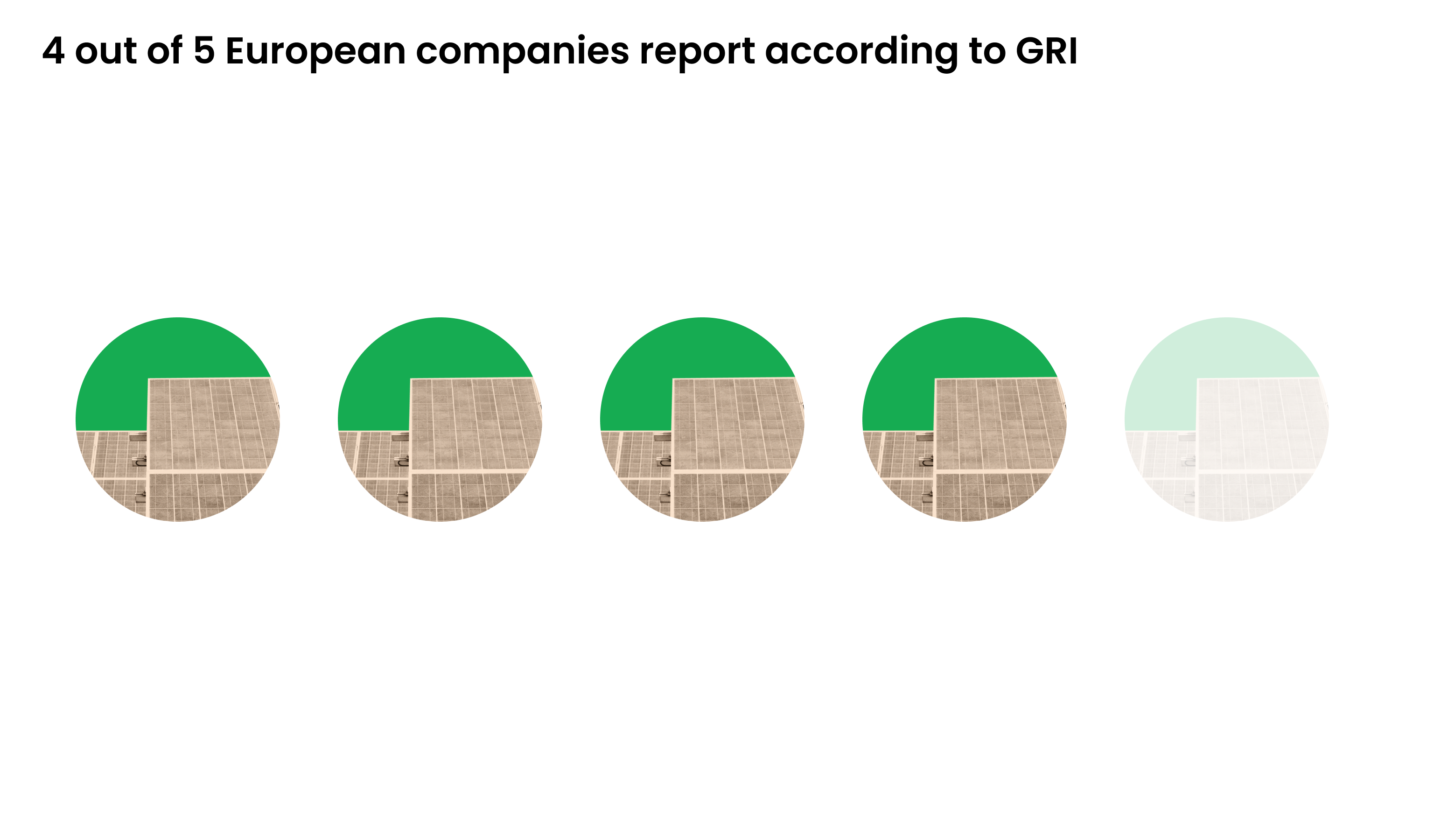Your Top 10 Sustainability Reporting Questions Answered

Business and sustainability leaders face incredible challenges in capturing, quantifying, and reporting on the impact of sustainability initiatives.
At Nexio Projects, we provide end-to-end support in evaluating, measuring, and embedding sustainability within businesses. Here, we answer your top 10 sustainability reporting questions and share information and insights from industry leaders.
1. What are the (key) steps in setting up a sustainability report?
The four-stage process involves:
- Defining performance goals and KPIs
- Measuring performance
- Evaluating performance
- Reporting
It sounds simple on paper, but there are several challenges. Many businesses have chosen sustainable development goals (SDGs) to report on, for example, but they can struggle to act and improve on those goals because there are few measurable KPIs. Setting KPIs is critical to accurate reporting.
You can use different methodologies to calculate climate data, such as supplier-specific data, average activity data, or spend-based data. You must agree on a data source that provides the most accurate and reliable emissions data. There are also data management challenges to processing, storing, and analysing data. A solid base enables you to build, providing year-on-year comparisons and tracking improvement.
When it comes to reporting, information should be simple, transparent, and actionable. It’s all about using data to drive sustainability improvements within your organisation and across suppliers.
2. Can you share some best practices for engaging with stakeholders?
Firstly, it's important to share with stakeholders what you're doing and why. Then, you can share your sustainability reporting systems and explain how they contribute to continuous improvement.
Each stakeholder will have different levels of knowledge, awareness, and understanding of sustainability issues, analysis, and reporting.
You may find that you need to educate stakeholders on the importance of sustainability reporting and changing regulations. The most effective stakeholder communication is tailored to the audience.
We all have a vested interest in increasing sustainability, and your progress will likely be greeted positively. Many younger people are highly motivated about sustainability initiatives, and those organisations that build green credentials into their brands will be more successful in the future.
3. How to demonstrate your sustainability progress with integrity?
Integrity is a byword for honesty. The key to building trust with stakeholders, suppliers, and customers is to be transparent with reporting. It links back to the importance of setting performance goals and KPIs that are measurable and manageable and can deliver a tangible impact.
Stakeholders will understand that you're on a journey toward greater sustainability – and there will be challenges along the way. Acknowledging these and tackling them is an essential step in building trust.
Investing in an impartial data-driven reporting platform is critical to establishing your integrity.
4. How to reduce the fear of greenwashing accusations?
Greenwashing is an accusation levelled at businesses that use sustainability as a cloak for environmentally damaging activities. These accusations emerge from anger that companies aren’t acting with honesty and integrity.
The solution? A data-driven sustainability reporting system that’s transparent.
A sustainability reporting system built around strong KPIs and a reliable baseline enables you to track progress and analyse impact. This allows you to demonstrate progress toward environmental sustainability supported by evidence.
Engaging and involving suppliers in this journey provides validation that your figures are trustworthy. Of course, it won't avoid individuals levelling accusations at you, but reporting provides a clear response.
5. What factors should you consider when choosing a sustainability reporting framework?
(And should your framework follow one or multiple guidelines?)
We've seen the emergence of several frameworks for sustainability reporting. At its most basic level, a framework can be considered a set of principles or guidelines a company must follow. SDGs are well established, but today four out of every five European businesses use GRIs. There are also sector standards that apply too.

SDGs are grandiose and cover the full spectrum of sustainability and ESG. The Greenhouse Gas protocol focuses on methods to allocate your emissions, enabling you to take better strategic actions by understanding where your biggest emissions are allocated.
Companies are free to select the most appropriate framework that delivers the most reliable data for decision-making. However, every choice will have an impact, and businesses must look to the future with developments such as the European CSRD harmonising reporting standards.
The most important task is identifying the differences between standards and your current reporting structure. Identifying and understanding the gaps in reporting enables you to tackle them.
However, we are certainly moving toward a global alliance upon the standardisation of reporting, which will arrive within the following year.
6. How can you complement different standards and frameworks (i.e. SDGs, GRI)?
The core goal is to bring greater alignment and comparability between the data sets across the different standards. Companies using different standards must try and get that alignment and greater comparability.
All of these standards can be incorporated into a single sustainability reporting platform.
7. Are there guidelines for getting the most out of the reporting?
To see it not only as annoying necessary duty but more as an opportunity
Businesses must shift their mindset from sustainability as a task to something central to their value proposition and future strategy.
Reporting can help accelerate internal change processes and enable your business to focus on activities that can reduce your environmental impact.
Sustainability reporting can provide a core competitive advantage. Those businesses that put sustainability at the centre of their organisations are better placed for future success.
8. How would you suggest rolling out results from your sustainability report to your sales/marketing teams?
You must educate the organisation on your sustainability strategy.
Disclosing sustainability data isn’t disclosure for the sake of disclosure but to align it with your vision and strengthen your strategy. If your sustainability credentials are strong, they can form a part of your offer and should be shared with potential clients and customers.
Many companies are already factoring sustainability into their procurement processes, so it should be promoted as part of your business’s value proposition.
9. How do you encourage your clients with "bad" results from reporting to publish?
How do we keep companies honest in their reporting?
Whether your results are good or bad, positive or negative, you must always publish them. This is critical to building trust and establishing integrity among all stakeholders.
While poor results can be disappointing, they must be accepted and used to drive further improvements. Reporting provides clarity about your progress – and the challenges you still face. Embracing this is essential for every business.
10. Since the SDGs targets are primarily developed to measure global or national progress, how exactly do we align them to our company-level targets?
SDGs are foundational targets that provide a clear line from your activities as a business to the globally agreed sustainability targets. Adopting SDGs clarifies what your business is doing to contribute to the global fight against climate change.
As we have highlighted, the key challenge is to ensure you translate SDGs into solid KPIs for your business.
Interested in learning more about the power of sustainability reporting?
The information in this article is from our Navigating the ESG Reporting Landscape series of videos. You can view them here. Check out our blog for the latest information, insights, and expertise in sustainability reporting.
If you would like to explore the impact sustainability reporting can have on your organisation, get in touch!
